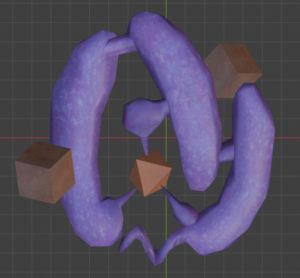Rusticyanin: Difference between revisions
Oliveriver (talk | contribs) Fill info box |
mNo edit summary |
||
| (18 intermediate revisions by 6 users not shown) | |||
| Line 3: | Line 3: | ||
| organelle = Rusticyanin | | organelle = Rusticyanin | ||
| icon = RusticyaninIcon.png | | icon = RusticyaninIcon.png | ||
| image = | | image = Rusticyanin.jpg | ||
| image_caption = Close-up of a Rusticyanin | |||
| cost = 45 | | cost = 45 | ||
| requiresNucleus = No | | requiresNucleus = No | ||
| processes = Iron | | processes = Iron Oxidation | ||
| enzymes = Rusticyanin | | enzymes = Rusticyanin | ||
| size = 1 | | size = 1 | ||
| Line 16: | Line 17: | ||
}} | }} | ||
Uses '''Iron''' {{CompoundIcon|image=IronIcon.png|internalName=iron}} to produce '''ATP''' {{CompoundIcon|image=ATPIcon.png|internalName=atp}} by the process of '''Iron Oxidation'''. | |||
== Requirements == | == Requirements == | ||
No requirements. | |||
== Processes == | == Processes == | ||
'''Iron Oxidation''': '''Iron''' {{CompoundIcon|image=IronIcon.png|internalName=iron}} → '''ATP''' {{CompoundIcon|image=ATPIcon.png|internalName=atp}} | |||
A method of generating energy without '''Glucose''' {{CompoundIcon|image=GlucoseIcon.png|internalName=glucose}}. Consumes '''Iron''' {{CompoundIcon|image=IronIcon.png|internalName=iron}}. | |||
== Modifications == | == Modifications == | ||
No modifications. | |||
== Effects == | == Effects == | ||
Evolving '''Rusticyanin''' equips a cell with the enzyme of the same name. This allows a cell to digest chunks of '''Iron''' {{CompoundIcon|image=IronIcon.png|internalName=iron}} in the environment. | |||
== Upgrades == | == Upgrades == | ||
No upgrades. | |||
== Strategy == | == Strategy == | ||
'''Iron''' {{CompoundIcon|image=IronIcon.png|internalName=iron}} is a valuable alternative resource to use instead of '''Glucose''' {{CompoundIcon|image=GlucoseIcon.png|internalName=glucose}} since it doesn't decay in the environment until much later. '''Iron''' {{CompoundIcon|image=IronIcon.png|internalName=iron}} is also directly transferred into ATP, so it can be a relatively cheap way to create an energetic organism early on in the Microbe Stage. However, because '''Iron''' {{CompoundIcon|image=IronIcon.png|internalName=iron}} is burnt through rather quickly, players must be mindful to constantly be near larger cloud-emitting chunks, and must budget this resource very carefully if they choose to play as a more motile organism. | |||
Storage can be a very useful attribute for iron-oxidizing organisms to utilize, as it allows them to store more of the rapidly-depleting compound. Size is also useful, as large organisms are able to ingest smaller '''Iron''' {{CompoundIcon|image=IronIcon.png|internalName=iron}} chunks floating around. This will give you more freedom in movement, as you'll be carrying a chunk of '''Iron''' {{CompoundIcon|image=IronIcon.png|internalName=iron}} with you as you explore your environment. ''' Cytoplasm ''' is a very beneficial part to consider for iron-oxidizing organisms, as it allows you to cheaply build up size and storage. ''' Vacuoles ''' are also very useful once you become a eukaryote. | |||
'''Iron''' {{CompoundIcon|image=IronIcon.png|internalName=iron}} depletes more quickly as your organism places more demanding parts. It will also start to disappear with the rise of '''Oxygen'''. As such, players who utilize '''Iron''' {{CompoundIcon|image=IronIcon.png|internalName=iron}} must be vigilant as oxygen begins to dominate their atmosphere, and should consider aerobic respiration if they wish to create highly-efficient eukaryotes. | |||
== Scientific Background == | == Scientific Background == | ||
'''Rusticyanins''' are proteins that can be found in the membranes of some bacteria and archaea. They oxidize '''Iron''' in contact with the membrane, transferring electrons from it as part of an electron transport chain. The charge created on the membrane surface is then used to draw positive '''Hydrogen''' ions into the cell. The extra electrons and ions help to convert spent '''ADP''' molecules into new '''ATP''' molecules and then reset the various proteins involved, so the process can start again. | |||
[https://en.wikipedia.org/wiki/Rusticyanin https://en.wikipedia.org/wiki/Rusticyanin] | |||
Latest revision as of 18:24, 18 December 2025
Uses Iron ![]() to produce ATP
to produce ATP ![]() by the process of Iron Oxidation.
by the process of Iron Oxidation.
Requirements
No requirements.
Processes
Iron Oxidation: Iron ![]() → ATP
→ ATP ![]()
A method of generating energy without Glucose ![]() . Consumes Iron
. Consumes Iron ![]() .
.
Modifications
No modifications.
Effects
Evolving Rusticyanin equips a cell with the enzyme of the same name. This allows a cell to digest chunks of Iron ![]() in the environment.
in the environment.
Upgrades
No upgrades.
Strategy
Iron ![]() is a valuable alternative resource to use instead of Glucose
is a valuable alternative resource to use instead of Glucose ![]() since it doesn't decay in the environment until much later. Iron
since it doesn't decay in the environment until much later. Iron ![]() is also directly transferred into ATP, so it can be a relatively cheap way to create an energetic organism early on in the Microbe Stage. However, because Iron
is also directly transferred into ATP, so it can be a relatively cheap way to create an energetic organism early on in the Microbe Stage. However, because Iron ![]() is burnt through rather quickly, players must be mindful to constantly be near larger cloud-emitting chunks, and must budget this resource very carefully if they choose to play as a more motile organism.
is burnt through rather quickly, players must be mindful to constantly be near larger cloud-emitting chunks, and must budget this resource very carefully if they choose to play as a more motile organism.
Storage can be a very useful attribute for iron-oxidizing organisms to utilize, as it allows them to store more of the rapidly-depleting compound. Size is also useful, as large organisms are able to ingest smaller Iron ![]() chunks floating around. This will give you more freedom in movement, as you'll be carrying a chunk of Iron
chunks floating around. This will give you more freedom in movement, as you'll be carrying a chunk of Iron ![]() with you as you explore your environment. Cytoplasm is a very beneficial part to consider for iron-oxidizing organisms, as it allows you to cheaply build up size and storage. Vacuoles are also very useful once you become a eukaryote.
with you as you explore your environment. Cytoplasm is a very beneficial part to consider for iron-oxidizing organisms, as it allows you to cheaply build up size and storage. Vacuoles are also very useful once you become a eukaryote.
Iron ![]() depletes more quickly as your organism places more demanding parts. It will also start to disappear with the rise of Oxygen. As such, players who utilize Iron
depletes more quickly as your organism places more demanding parts. It will also start to disappear with the rise of Oxygen. As such, players who utilize Iron ![]() must be vigilant as oxygen begins to dominate their atmosphere, and should consider aerobic respiration if they wish to create highly-efficient eukaryotes.
must be vigilant as oxygen begins to dominate their atmosphere, and should consider aerobic respiration if they wish to create highly-efficient eukaryotes.
Scientific Background
Rusticyanins are proteins that can be found in the membranes of some bacteria and archaea. They oxidize Iron in contact with the membrane, transferring electrons from it as part of an electron transport chain. The charge created on the membrane surface is then used to draw positive Hydrogen ions into the cell. The extra electrons and ions help to convert spent ADP molecules into new ATP molecules and then reset the various proteins involved, so the process can start again.

